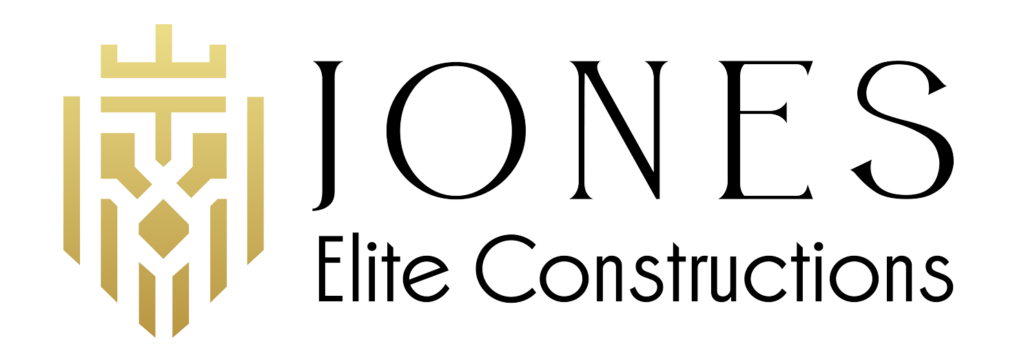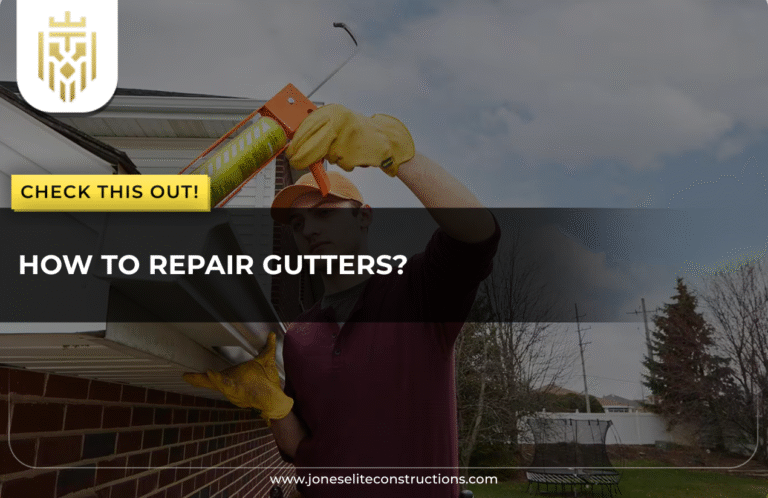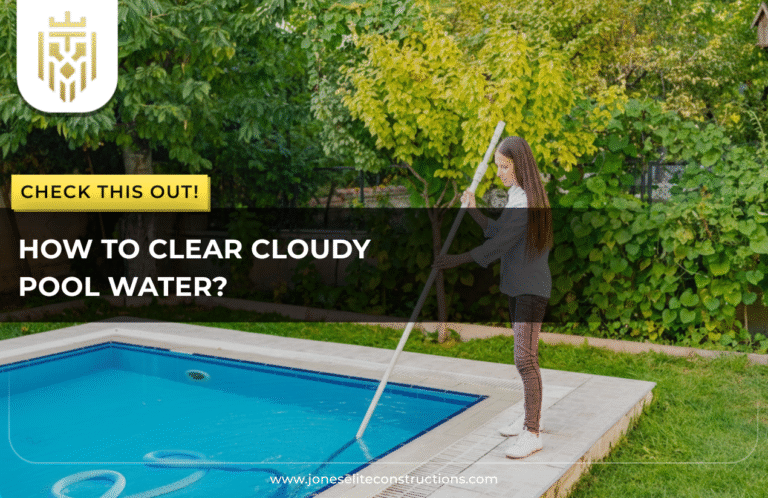What is a Pool Inspection?
A pool inspection involves checking the swimming pool’s condition, equipment, and safety features in detail. If you’re curious about what a pool inspection is, it verifies that the pool meets safety standards and works as it should. Professionals follow an inspection checklist during this process.
When Should You Get a Pool Inspection?
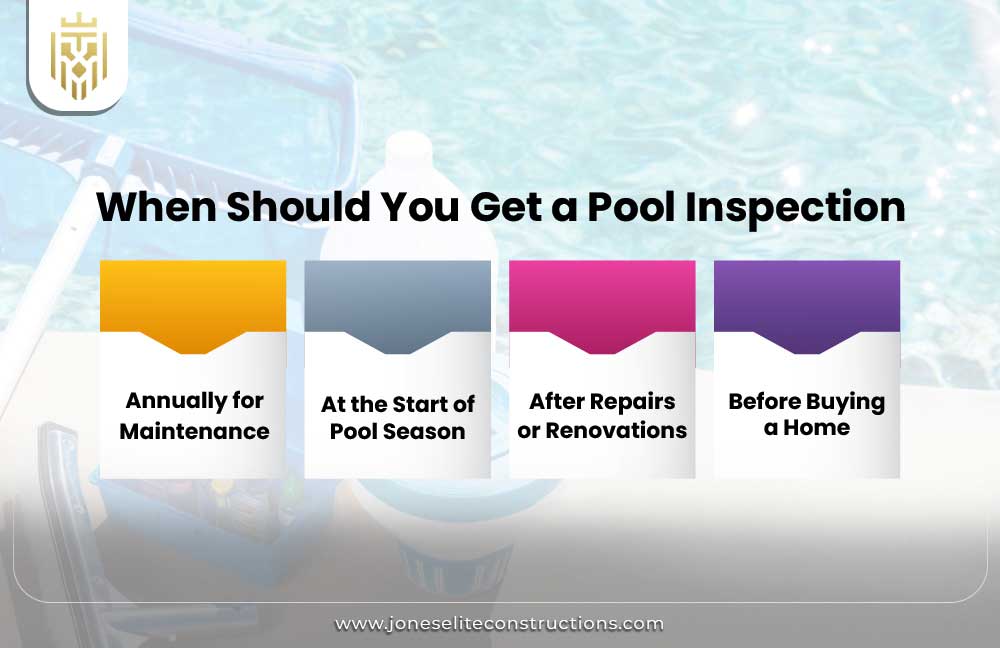
Scheduling a swimming pool inspection at the right time helps keep the pool in good shape and avoid expensive repairs. Whether it’s part of routine maintenance or preparing to sell a property, inspections help your swimming pool stay safe, efficient, and compliant with relevant regulations and guidelines.
Annually for Maintenance
An annual pool inspection identifies wear, tear, and minor damages before they turn into major problems. Regular checks prolong your pool’s lifespan and lower unexpected repair costs. A proper inspection checklist guides professionals through evaluations of the structure, chemicals, and mechanical systems.
At the Start of Pool Season
At the start of pool season, a swimming pool inspection ensures everything is safe and working after months of not being used. This helps catch potential problems early, ensuring a smooth beginning to your swimming season without unexpected equipment failures or safety risks.
After Repairs or Renovations
After any repairs or upgrades, a pool inspection confirms that the work meets industry standards and hasn’t caused further issues. This step is essential to keep warranties valid and make sure all systems, surfaces, and features are operational and meet safety standards.
Before Buying a Home
Homebuyers should always ask, What is a pool inspection?, to appreciate its importance during real estate transactions. A thorough swimming pool inspection reveals hidden defects, possible repair costs, and safety concerns, providing peace of mind before completing the purchase.
Pool Inspection Checklist
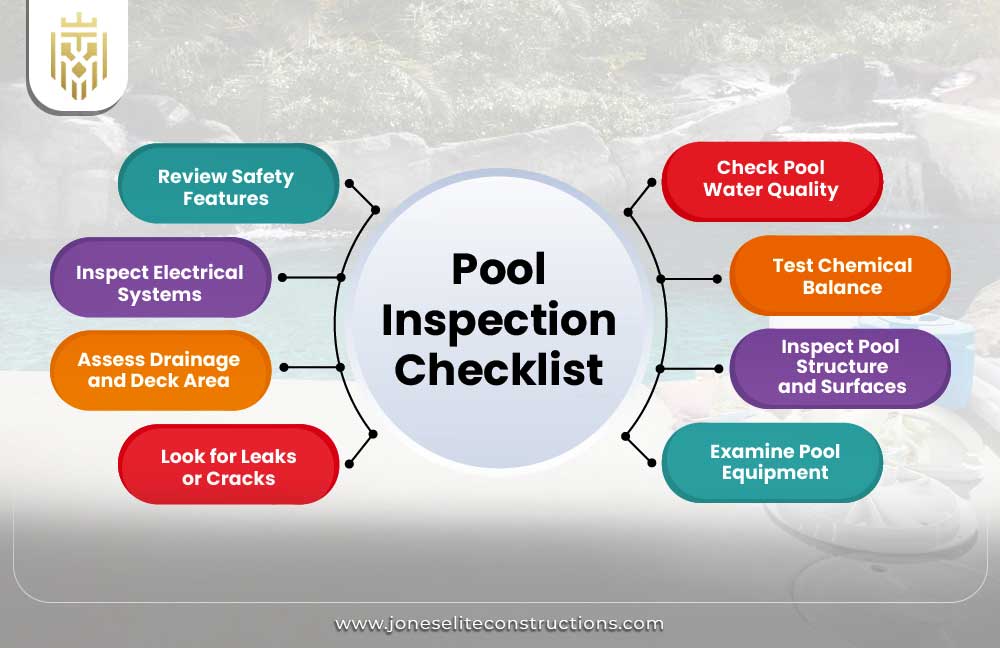
A detailed pool inspection checklist helps inspectors examine every part of the swimming pool system. From water quality and equipment to electrical safety and drainage, this checklist ensures nothing is missed, promoting long-term safety and proper pool maintenance.
Check Pool Water Quality
Checking water quality during a pool inspection makes sure the swimming environment is healthy and safe. Clear, clean water shows that filtration and sanitation are working properly. Water quality checks help stop illnesses and ensure a pleasant experience for all pool users throughout the season.
Test Chemical Balance
Testing the chemical balance is a key part of the pool inspection checklist. Balanced chemicals keep water safe for swimming and protect the pool’s surfaces and equipment from damage caused by improper pH levels, chlorine, and other necessary treatments.
Inspect Pool Structure and Surfaces
Evaluating the pool’s structure and surfaces during an inspection helps spot issues like cracks or deterioration. Catching these early prevents costly repairs and helps maintain both the appearance and safety of the swimming pool for continued use.
Examine Pool Equipment
Inspecting equipment like pumps, filters, and heaters is crucial in any swimming pool inspection. Properly working equipment ensures water circulation, heating, and cleanliness. Faulty devices can lead to poor water quality, higher expenses, and potential hazards if not addressed.
Review Safety Features
Reviewing safety features during a pool inspection checks compliance with regulations and protects users. Gates, covers, and alarms must work properly to avoid accidents. A thorough safety evaluation is critical to keeping a secure swimming environment for everyone.
Inspect Electrical Systems
Electrical systems are an essential part of any pool inspection. Well-functioning lights, pumps, and timers ensure efficiency and safety. Finding faults early prevents shocks, fires, and breakdowns, protecting swimmers and maintaining reliable pool operations.
Assess Drainage and Deck Area
Drainage and deck conditions affect the safety and longevity of a swimming pool. Poor drainage causes water to pool and leads to damage, while faulty decking poses slip hazards. Regular assessments prevent accidents and help maintain the pool’s overall structural integrity.
Look for Leaks or Cracks
Checking for leaks or cracks is fundamental to any pool inspection. Early detection helps prevent water loss, structural damage, and costly repairs. A thorough inspection checklist makes sure these issues are identified and handled quickly for safe, continued use of the pool.
FAQs
1) What is a pool inspection?
A pool inspection involves checking the swimming pool’s structure, equipment, and safety features. It ensures compliance with regulations and finds potential problems using a detailed checklist. This helps keep the pool functioning properly and safely.
2) Why is a regular pool inspection important?
Regular pool inspections help spot issues early. They make sure your swimming pool stays safe, functional, and efficient. Inspections can prevent costly repairs, support health standards, and protect your property’s value through regular maintenance and timely assessments.
3) When Should You Get a Pool Inspection?
You should schedule a swimming pool inspection every year, before the pool season, after renovations, or when buying a home. Timely inspections help keep your pool safe, efficient, and meeting all necessary safety and operational standards.
4) How often should I inspect my swimming pool?
Inspect your swimming pool at least once a year for maintenance. You should also consider additional inspections before reopening for the season, after major repairs, or if you notice any issues that affect safety, structure, or performance.
